 When I was younger, I used to wander off into a fantasy land where I was loved and important. In my fantasy, everyone was grateful for my existence and was glad to know me or even associate with me. I don’t think I was alone in this fantasy but it begs the question, why was this my ultimate dream? What does it say about my perception of reality? And most importantly, what does any of this have to do with Harry potter?
When I was younger, I used to wander off into a fantasy land where I was loved and important. In my fantasy, everyone was grateful for my existence and was glad to know me or even associate with me. I don’t think I was alone in this fantasy but it begs the question, why was this my ultimate dream? What does it say about my perception of reality? And most importantly, what does any of this have to do with Harry potter?
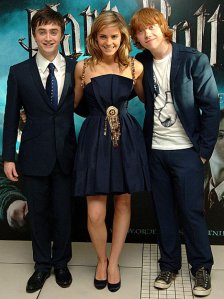
Is there a spell that shortens this blog post?
Harry Potter books, penned by one-time struggling single mom JK Rowling, are reported to have sold more than 450m copies worldwide. Consequently, Rowling’s financial status has grown from welfare recipient to billionaire. Perhaps seeing the success of the Potter series, other authors have built upon its framework. Series revolving around Percy Jackson and Charlie Bone have both capitalized on the same theme.
However, despite the wild success of Harry Potter, Percy Jackson, and other similar series, they were not the first to exploit this theme. Earlier film series such as Star Wars also capitalized on what seems to be a societal resonance with the story of someone once thought to be unimportant, who in fact possesses unique gifts or powers singular to themselves. This person turns out to not only be important, but to be the most important person in the world, even someone upon whom the salvation of the world depends.
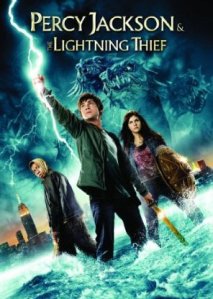
Quick Percy!! Follow Harry Potter!!
This hero archetype sounds strikingly familiar to my childhood fantasy of importance. As I see this being played out over and over, I recognize that its appeal is not just with youth but with adults as well. Think of the book and film series “Lord of the Rings” by J.R.R. Tolkien. In that story, Frodo, the young and unassuming hobbit, small in stature and importance in the realm of middle earth, has a task appointed to him that only he can complete. His successful completion of this task will determine not only his own survival but the survival of the entire middle earth realm, including those individuals thought to be more strong, powerful, and important than the lowly Frodo.

Does this look like someone to whom you would entrust the safety of the universe? Or even your bike?
I could go on listing numerous examples of this theme playing out but I think you get the point. All of these similarities have led me to some questions. The first: how is it that society seems to have such a narrow interest in terms of their heroes and in forms of entertainment? That is a discussion for another time. For now, I want to focus on the second question: why is it that this theme, what I call “The Hidden Hero”, seems to speak to people so strongly? I believe that the answer lies in the security of attachment on a societal level.
In a class that I teach, “Attachment, Anger, and Anxiety”, I refer to attachment as “the answer to everything”. Those of you who have read any of my past blog posts or have had conversations with me know that I always bring everything back to attachment. And yes I mean everything. Even Harry Potter.
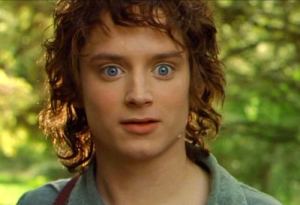
Save Middle Earth from the forces of evil? Yeah, I’ve done that.
I do not think that it is a coincidence that the Hidden Hero theme speaks to people on a societal level across cultures. Keep in mind that the Harry Potter books and the Lord of the Rings books have sold in the hundreds of millions of copies world wide, not just in North America.
Perhaps you think I am overanalyzing this, applying pathological counsellor bias to something very benign. You may be right. Maybe I am the only one for whom this theme resonates, due to being the highly sensitive second of seven active children produced by two high-achieving parents and therefore consistently feeling unappreciated. However, perhaps an analogy may help you to see where I’m coming from. If you were starving and someone offered you something to eat, would that food not be satisfying? If you were full from a meal and the same person offered the same food would you even partake? If you did so, perhaps out of a sense of obligation, would you feel satisfied after having eaten their offering?
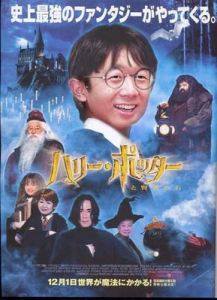
Potter San! Ikimashoo!
In a sense what I’m saying is that something is only appealing if it fills a need. If it does not fill a need it will not have staying power. That is why, I believe, stories such as Harry Potter, Lord of the Rings, Percy Jackson, Star Wars, and the like, have such mass appeal. I believe they address a need for people who feel unimportant in their own lives to live and realize dreams of importance vicariously through fictional characters.
The fundamental purpose of our attachment instinct is to help us attach to our caregivers in order to feel safe and secure in our environment. In order to feel safe and secure in the company of our caregiver, we must feel that our presence matters to the caregiver.
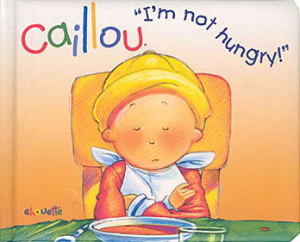
Caillou: role model for strong boundaries.
Not only our presence, but our future. This is what I believe is lacking in our current society, and by society I mean our world society.
Because of the industrialization of our society and the rapidly receding amount of time spent together as families (and the lack in quality of that time) children are often left to raise themselves. Dr. Gordon Neufeld, a child psychologist from Vancouver, British Columbia and author of the book “Hold On To Your Kids“, makes this point very eloquently when he states,
As with all mammals and many other animals, it was simply the natural order of things that the innate attachment drive itself bonded the young with caregivers… until maturity. That is nature’s way of ensuring the survival of the young into healthy adulthood., It is the context in which the younger are fully enabled to realize their genetic potential and in which their instincts are best given full and vigorous expression. In our society, that natural order has been subverted. From an early age, we thrust our children into many situations and interactions that encourage peer orientation. Unwittingly, we promote the very phenomenon that, in the long term, erodes the only sound basis of healthy development: children’s attachment to the adults responsible for their nurturing. Placing our young in a position where their attachment and orienting instincts are diverted toward peers is an aberration. We are not prepared for it; our brains are not organized to adapt successfully to the natural agenda being so distorted
I believe that the underlying (and for the most part, completely unintentional) message communicated to children of the past few generations is that they are not worth the time of their caregivers. This has created a need, or a hunger, to feel important. This hunger is what is behind the voracious consumption of Hidden Hero stories, both fictional and factual. Before vilifying caregivers, I think it is important to realize that the caregivers often don’t know any better because that they are only replicating the care that they themselves received.
Whatever the cause, society seems to clamor towards the hidden hero, root for the underdog, and vicariously glory in the triumph of those who were thought to be of naught.
While I have focused on more recent history, this theme of the Hidden Hero can be seen throughout recorded history, dating back to the story of Moses in the Bible. Even Jesus Christ, whether you are a Christian or not, is a compelling story of a carpenter’s son who many believe to have been much more than that. The prophet Muhammad was an impoverished and orphaned merchant who went on to found the Islamic religion.
In more contemporary literature, Asterix comics, from the 50s through the 70s featured a tribe of unassuming Gauls whose unassuming druid created a potion that gave them enormous powers. Tintin is a reporter who solves international crimes and goes on wonderful adventures.
The “High School Musical” movies featured two main characters who experienced unlikely success in an area where no one gave them a chance to excel. Charlotte Church, Aled Jones are both examples of musical prodigy that seemed to strike a chord (no pun intended with the general public). If you think about it, as far as singing voices go, there are plenty of people out there who can sing like those two, but how many of them could do so at such a young age. It is the unexpected significance of individuals such as these that gives them such mass appeal.
The rise of “Britain’s Got Talent” (and its international versions) and some of its discoveries, such as Paul Potts, Susan Boyle, Andrew Johnston, Connie Talbot, and more recently, Jonathan Antoine have all demonstrated society’s love affair with the Hidden Hero. Perhaps none exemplifies this better than Sung-Bong Choi, of South Korea, whose story of rising from homeless orphan to singing sensation has nearly burned YouTube to the ground.
Society has long been fascinated with stories of exceptional genius from unassuming beginnings, such as Kim Peek, featured in the feature film “Rain Man”, Daniel Tammet, featured in “The Boy with the Incredible Brain” and Derek Paravicini, known as “The Human iPod”.
Don’t forget Ted Williams, the man with the golden voice, Chris Gardner, whose story was told in the film, the Pursuit of Happyness, and even Jeremy Lin, the point guard for the New York Knicks in the NBA, whose explosion onto the basketball scene from the end of the bench created a marketing frenzy known as “Linsanity”.
Perhaps the greatest modern example of the transformation from seemingly insignificant to endlessly influential is Oprah Winfrey, whose impoverished and victimized beginning served as a foundation upon which a $3 billion empire has been built.
That’s a lot of links and a lot of success stories, but obviously this list is not exhaustive and this post could lead into many directions and perhaps even many conversations. I welcome your comments and thoughts on the matter. I will also be touching upon this theme in future posts. If you would like to talk about attachment and feeling important in your own life, please feel free to contact me.















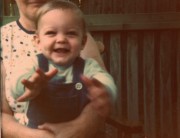
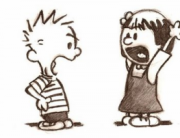

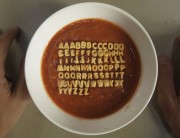



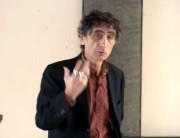
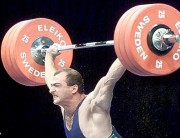



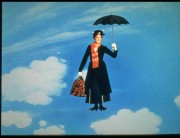


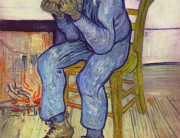

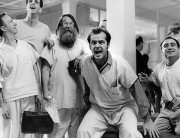




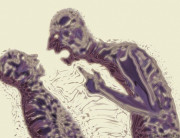



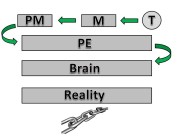




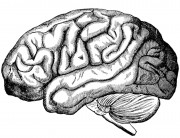
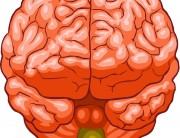
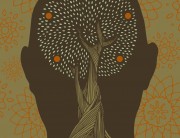

Recent Comments